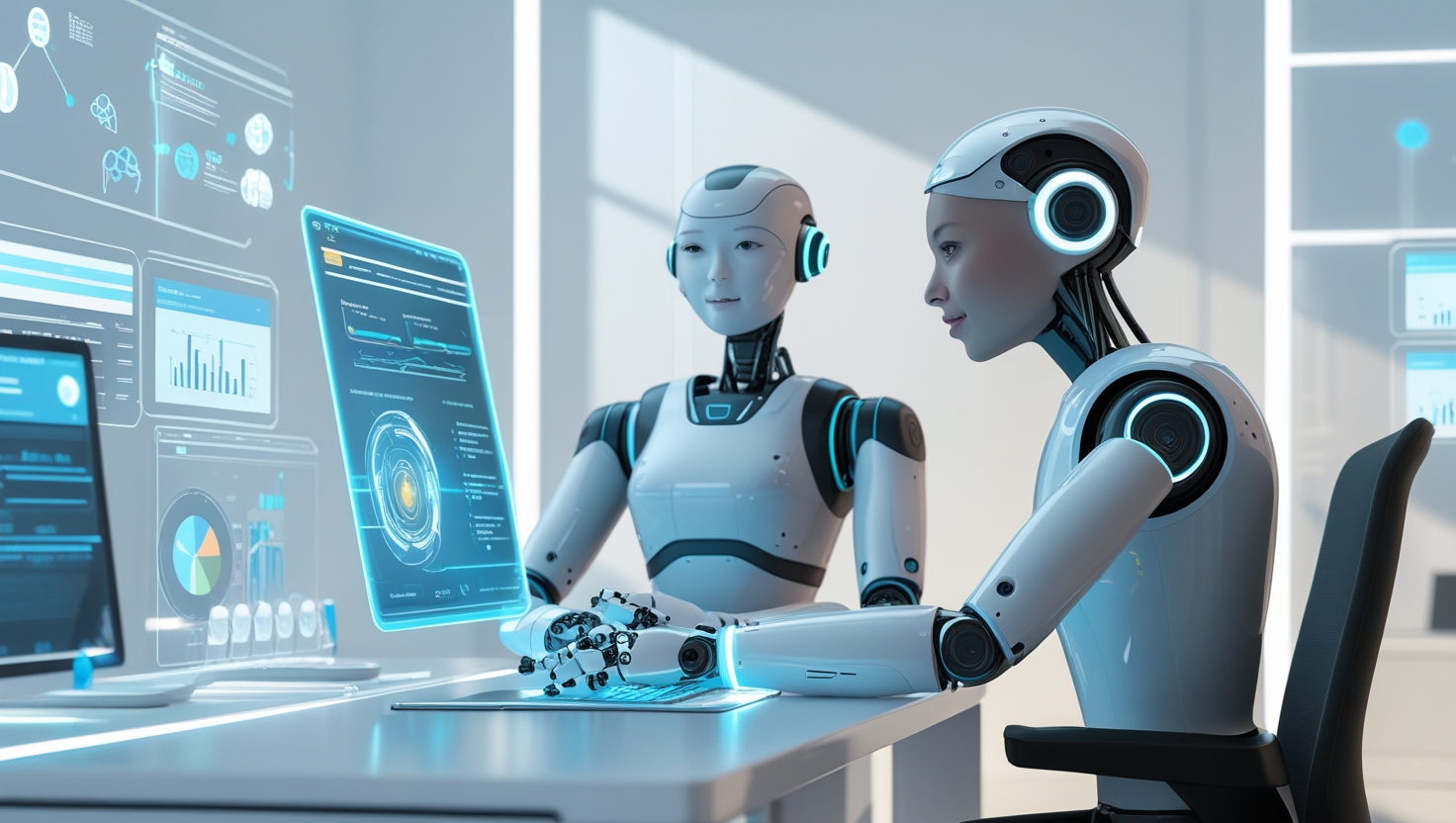Empowering the Future of Work with AI

The relationship between AI and the future of work is transforming industries faster than ever before. Artificial Intelligence (AI) is not just a technological upgrade; it is a power-packed tool that is revolutionizing how we work, collaborate, and innovate. By automating repetitive tasks and enhancing human potential, AI is creating a workplace that’s smarter, more productive, and future-ready.
The Role of AI in Modern Workplaces
From intelligent chatbots to advanced data analytics, AI and the future of work are intertwined in creating smarter business environments. Key areas where AI is impacting workplaces include:
-
Process Automation: AI-driven software can perform time-consuming tasks, freeing employees to focus on strategy and creativity.
-
Data Analysis: Machine learning helps businesses predict trends, understand customer behavior, and make data-backed decisions.
-
Recruitment & HR: AI-powered tools streamline recruitment by scanning resumes and shortlisting candidates efficiently.
-
Customer Support: Virtual assistants provide round-the-clock service, enhancing customer satisfaction.
AI Creates Opportunities, Not Just Challenges
A common misconception is that AI will eliminate jobs. However, the reality is that AI and the future of work are creating new roles that require analytical, technical, and creative skills. While repetitive tasks are automated, humans can focus on leadership, innovation, and critical problem-solving.
Upskilling and continuous learning are essential for professionals to stay ahead in this AI-driven era. Companies that invest in employee training will reap the benefits of a skilled and adaptive workforce.
The Human Touch in an AI-Powered World
Despite its capabilities, AI lacks emotional intelligence, empathy, and creativity—traits that are uniquely human. The future workplace will thrive on human-AI collaboration, where AI handles routine operations while humans bring in innovation and decision-making.
Benefits of AI in the Future of Work
-
Increased Productivity: Employees save time by automating mundane tasks.
-
Enhanced Accuracy: AI reduces human errors in data processing.
-
Remote Work Enablement: AI tools like virtual project managers make remote teams more efficient.
-
Customized Learning: AI identifies skill gaps and recommends personalized training paths.
Why Businesses Should Embrace AI
Organizations that adopt AI early are likely to outperform their competitors. By blending AI with human creativity, businesses can unlock new levels of innovation and customer satisfaction.
Conclusion
The relationship between AI and the future of work is not about replacing humans but empowering them. Companies and professionals who embrace AI and focus on reskilling will find themselves at the forefront of a new, dynamic work culture.
